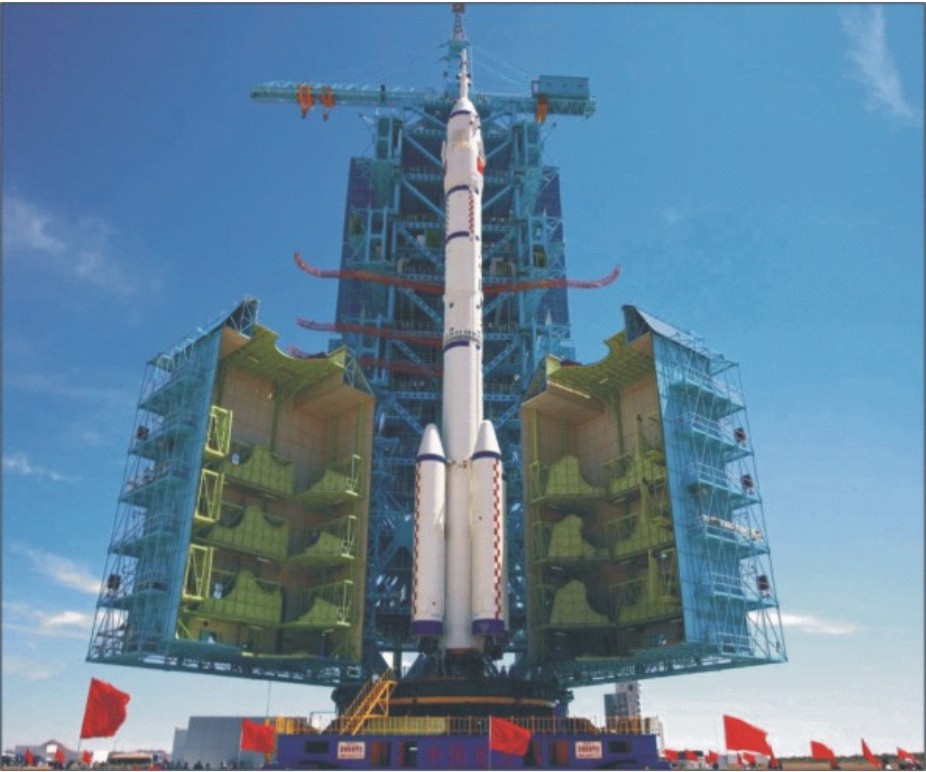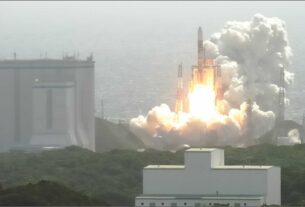Eye in space
After indulging in port diplomacy with India’s neighbors China is now engaged in Space diplomacy with them. This has caused jitters in Indian security establishment, which incidentally was not caught off guard.
Sri Lanka, Maldives and Bangladesh had floated global Request for Proposal for acquiring communication satellites and the relevant Indian departments did not take note of this. However, much later they realized that the Chinese has taken advantage of their offers and found it as a golden opportunity to further deepen its relations with India’s neighbors and further increase their dependence on China.
First China built Gwadar port for Pakistan, Sittwe port for Myanmar, Hambantota port for Sri Lanka and is already engaged in one for Bangladesh.
Challenging India’s presence
Now China has offered to launch satellites for Maldives and Bangladesh and a communication satellite for Sri Lanka has already been launched in last November. China has thus leapfrogged from port diplomacy to space diplomacy in the South Asian region and posing a challenge to India’s neighborhood policy.
A concerned Indian security establishment took note of this and for the first time discussed the implications of Chinese forays into South Asian Space. The office of National Security Advisor called a meeting of all the relevant departments like Ministry of External Affairs, Information technology, Information and Broadcasting, Space and Home and discussed ways to dissuade those countries from acquiring Chinese satellites and instead acquire the services of the transponders from Indian satellite.
After all, these are very small countries and their requirements would not be more than one or two transponders, which India can easily lease them.
Conscious of Indian sensitivities over the development, the Sri Lankan government had then claimed that the launch of a satellite was a private effort by a Sri Lankan private company SupremeSat (Pvt Ltd) which placed an order with the China Great Wall industry corporation and the satellite was launched from the Xichang Satellite Launch Centre in western China.
It reinforced the impression that Sri Lanka is getting closer to China and increasing its dependence on China for such a vital communication infrastructure. In case Sri Lanka drifts towards India at the cost of Chinese interests China can easily pull its space strings and force the Sri Lankans to listen to them. Interestingly the Chinese defence minister had visited Colombo two months before the launch in September and was offered grants to modernize Sri Lankan military training.
After the launch of the satellite one Indian diplomatic source in Colombo had tried to assuage the Indian concerns by stating that the satellite has been placed in the Chinese orbital slot and at that far the Chinese cannot do any thing and hence not a concern for India. As a follow up to the launch of the satellite the Chinese are helping the Sri Lankans to set up a space academy and satellite ground station.
The intelligence community has been warning the Indian government over Chinese moves to strike deals in India’s neighbors for building the large telecom and IT networks.
Indian companies can certainly engage in these areas, but they need the encouragement and guidance of the relevant government agencies. All the governments departments and agencies must see to it that they work hand in glove with India’s rich private sector to further nation’s strategic interests.
Missing opportunities
However India does not want to miss the Maldivian bus and has become very proactive. The Maldivian government had issued a tender for the satellite last February and Indian Space department did not respond. But it was the job of the MEA or the NSA office to take note of this and talk to the Maldivian government on the issue. The Indian Space Department could not have suo moto responded as they neither have the requisite fund nor they are allowed to pursue India’s strategic interests and extra capacity to launch a special satellite for a neighboring country.
Six companies from China, UK, Netherlands, Cyprus, Luxemburg and Thailand had expressed interest in the project. But the Maldivians proceeded with the Chinese response and they already have conducted detailed discussions.
Meanwhile when the Maldivian defence minister Muhammad Nazim visited India in mid April, the issue was discussed and India offered to send a team to Male in late May to discuss the exact requirements of the Maldivian government. The Maldivian defence minister himself revealed on 28th April that the Indian team would be discussing the issue with the Maldivian officials.
The Communications Authority of Maldives had earlier said that India had not sent any proposal for the project. But a senior official of CAM said that the Indian proposal for the project must be considered. Nazim had commented that India’s offer was different from other countries and it would have no bearing on the proposals of those countries who want to launch and operate the Maldivian satellite.
According to the minister, “we will know how we want to proceed after India does its study.” But the Chinese satellite companies are making strong pitch for the projects and offering sops to the Maldivian government.
Meanwhile, it has been learnt that Bangladesh government has also approached the Chinese authorities to launch a communication satellite for them.
For Bangladesh to have an independent satellite makes sense as the country requires independent national communication infrastructure in view of its huge population and rising economy, but for Maldives to seek an independent satellite raises many questions.
If the Chinese satellite companies also win the Bangladeshi contract then it would have another eye in space directly over India. Though footprints of Chinese satellites over India is not a problem for them, having direct space links with Bangladesh, Sri Lanka and Maldives, all in India’s vicinity would definitely cause concern for Indian security establishment.
But even if India wants to launch satellites for the neighbors, it would be difficult in view of the limited launch capacity Indian Space Research Organisation has acquired over the years. India at best can launch two or three satellites in a year, which is mainly for meeting domestic needs.
On the other hand the Chinese can launch at least two dozen satellites a year and hence they can afford to launch satellites for friendly states on priority basis. For ISRO to have such capacity, the Government of India must provide enough funding and manpower to grab international launch contracts and also be able to fulfill the strategic interests of the country.
Though communication satellites as such may not pose any threat to India’s strategic interests as they certainly cannot spy over India’s vast land mass, but providing such high end technological facilities to smaller countries would make them critically dependent on them for their smooth operation.
India neither has huge reservoir of funds to compete with China nor is its space launch infrastructure vast to be able to free its launch pads for satellites of other countries. If India wants to achieve great power status with the capacity to influence the countries of the region and to make them dependent for day to day life, the country must have strategic wisdom and foresight to make its presence felt.
The moves of India’s neighbors to acquire satellites from India’s rival country should certainly awake India’s strategic planners and see to it that India does not miss the bus in future.





